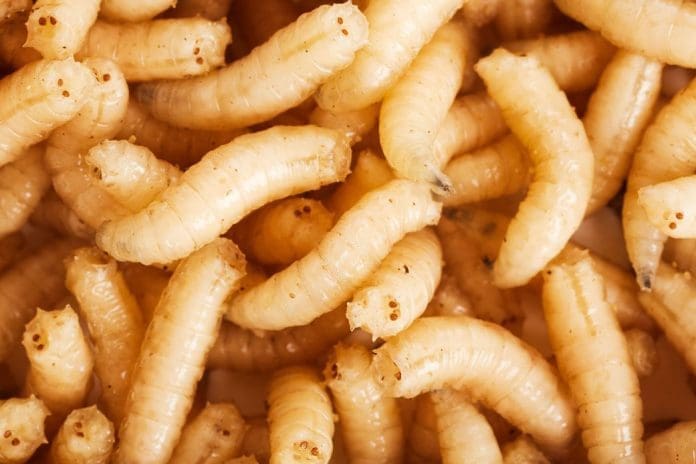Black soldier fly farming emerges as Ghana’s next agricultural opportunity, offering solutions to waste management and expensive livestock feed amid growing market demand across Africa.
The practice involves controlled breeding of black soldier flies whose protein-rich larvae serve as sustainable alternatives to costly fishmeal and soybean meal. The larvae thrive on organic waste, converting it into nutrient-dense fertilizer while providing an ideal feed source for poultry, fish and pigs.
Global projections indicate the farmed insect market for human food and animal feed will reach $8 billion by 2030, with a 24 percent compound annual growth rate. Industry analysis shows the insect feed market alone is expected to grow from $1.37 billion in 2025 to $2.39 billion by 2030.
Ghana’s neighboring countries have already capitalized on this emerging sector. Kenya has developed thriving black soldier fly operations, while South Africa and China have integrated maggot farming into their agricultural transformation strategies. Kenyan companies now export insect-based feed products across Africa, demonstrating the sector’s export potential.
Ghana possesses ideal conditions for replicating this success. The country’s tropical climate supports year-round fly breeding, while abundant organic waste from urban centers and agricultural activities provides raw materials. Rising livestock and aquaculture sectors create ready markets for alternative feed sources.
The farming process begins with introducing organic waste including food scraps, poultry droppings, or agricultural by-products to fly larvae. Maggots consume this waste material, growing rapidly before harvest within seven to fourteen days. The process yields both nutritious animal feed and organic fertilizer residue.
Ghana’s poultry and aquaculture industries face significant challenges from expensive feed costs, which represent up to 70 percent of production expenses. Maggot meal offers substantial cost reductions while maintaining nutritional quality, potentially transforming profitability for local farmers.
Research conducted in Ghana has demonstrated the black soldier fly’s effectiveness in breaking down organic waste while producing high-quality protein alternatives to expensive fishmeal and soybean-based animal feed. The country already hosts some industrial-scale operations, with Cycle Farms opening Ghana’s first major black soldier fly facility in Tema in 2019.
Urban waste management represents another compelling application. Cities like Accra struggle with organic waste disposal, creating environmental challenges and missed economic opportunities. Maggot farming transforms this waste stream into valuable commodities, supporting Ghana’s circular economy objectives.
Entry barriers remain relatively low compared to traditional livestock operations. Small-scale production requires minimal land and basic infrastructure including simple sheds with containers or crates. This accessibility makes the sector particularly attractive for young entrepreneurs and rural farmers seeking alternative income sources.
Environmental benefits distinguish maggot farming from conventional protein production methods. Unlike fishmeal production that depletes wild fish stocks, insect farming operates sustainably while reducing greenhouse gas emissions from decomposing waste materials.
The sector offers significant employment potential addressing Ghana’s youth unemployment challenges. Opportunities span farming operations, feed processing, waste collection, and distribution networks, creating diverse income streams across rural and urban areas.
Regional surveys indicate over 80 percent of feed processors and farmers express willingness to integrate insects into livestock and fish feeds, suggesting strong market acceptance for insect-based alternatives.
Prospective investors should prioritize training and knowledge acquisition through agricultural institutions and development organizations offering insect farming support. Securing reliable organic waste supplies and establishing market linkages with poultry and fish farmers represent critical success factors.
Government support and private sector investment could accelerate sector development, transforming organic waste challenges into wealth creation opportunities. For entrepreneurs and young graduates seeking innovative agribusiness ventures, maggot farming presents significant potential in Ghana’s evolving agricultural landscape.
Source: newsghana.com.gh











